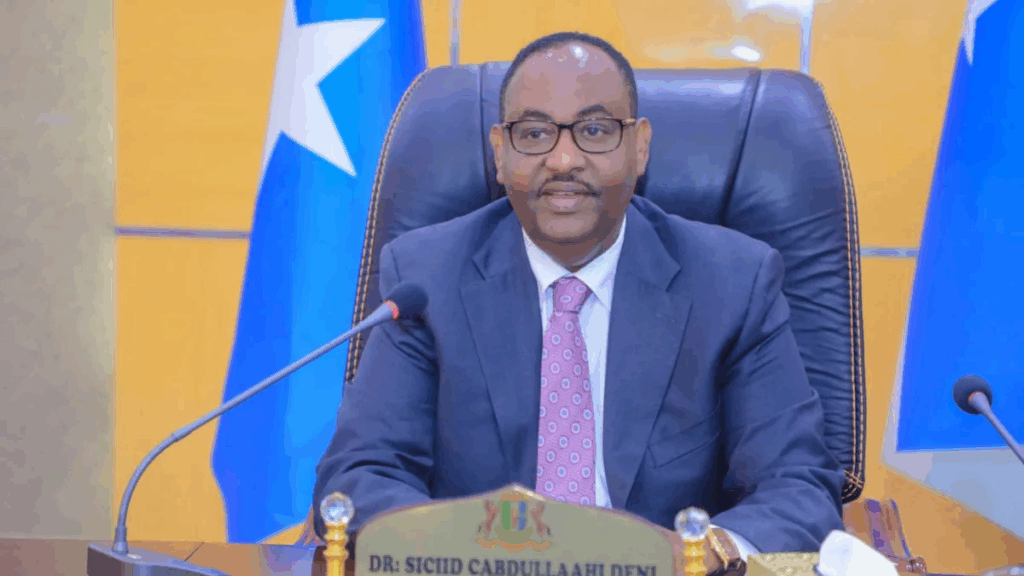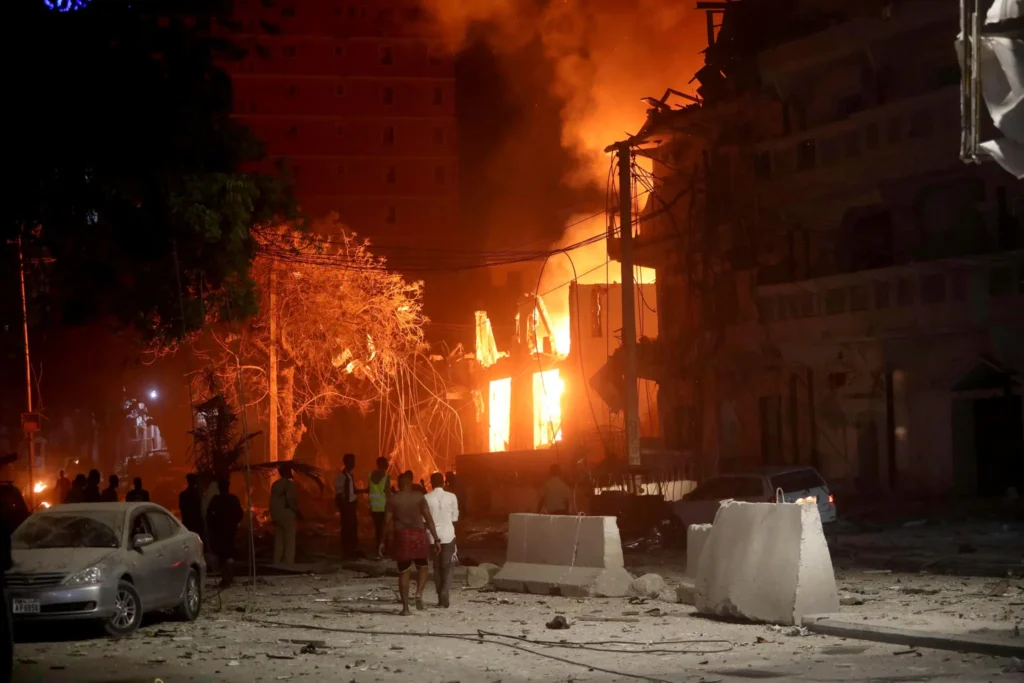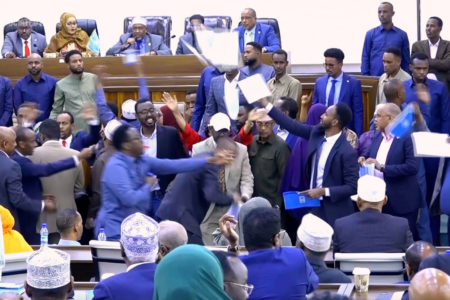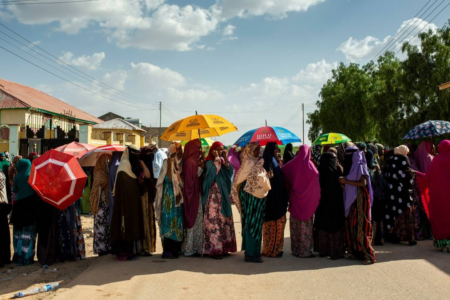Al-Shabaab overnight attack on the Somali capital, Mogadishu came at a time when the government has been promoting a narrative of improved stability.
It raised fresh concerns about the true state of security ahead of key national events.
Gunfire and Explosions in Kahda District
Al-Shabaab overnight attack began late Monday night in Mogadishu’s southern Kahda district.
Where heavily armed militants targeted bases belonging to the Turkish-trained Haram’ad special police unit.
Residents reported hearing gunfire and explosions that continued into the early hours of Tuesday as Somali security forces battled the attackers.
Al-Shabaab’s Claim of Responsibility
Al-Shabaab claimed responsibility for the coordinated strikes through its media outlet, Radio Andalu.
The group also alleged that it had conducted another attack in Elasha Biyaha, on the outskirts of Mogadishu, killing several soldiers and wounding others.
Although these claims remain unverified, they reflect the group’s continued ability to mount complex operations near the capital.
Somali Government Narrative About Al-Shabaab Overnight Attack
Promises of Security Under Pressure
The latest assault undermines the Somali government’s repeated claims of progress in securing Mogadishu.
Since his re-election in 2022, President Hassan Sheikh Mohamud has pledged to defeat Al-Shabaab and restore stability.
However, the group continues to strike with alarming frequency, demonstrating that the security situation remains fragile.
Recent Policy Moves and Public Reactions
In recent weeks, the government announced the reopening of several major roads in Mogadishu and restrictions on the movement of armored vehicles—measures intended to project confidence and normalcy.
Yet, critics argue these steps were premature.
Opposition figures accused authorities of downplaying threats and using security policies to suppress political competition rather than enhance safety.
A Pattern of Bold and Coordinated Attacks
Targeting High-Security Zones
Al-Shabaab overnight attack follows an earlier incident in which they infiltrated an intelligence compound near the presidential palace using a vehicle packed with explosives.
That attack breached one of the city’s most heavily fortified areas.
Underscoring how militants continue to exploit weaknesses even within top-security zones.

Uncertain Casualties and Official Silence
As of now, the government has not released official casualty figures or issued a formal statement regarding Al-Shabaab overnight attack on Mogadishu.
The silence highlights the sensitivity of the issue and the ongoing struggle to maintain public confidence in the state’s ability to protect its citizens.
Implications for Somalia’s Political Future
Elections Under Threat
The attack comes just weeks before Mogadishu is set to hold its first municipal elections in decades, followed by national parliamentary polls.
With large parts of the country still under militant influence and regional tensions growing.
These attacks cast doubt on Somalia’s readiness to conduct credible and secure elections.
A Persistent and Evolving Threat
Despite international support and ongoing military operations, Al-Shabaab remains one of the most resilient insurgent movements in Africa.
Its continued ability to strike deep inside Mogadishu shows that Somalia’s path toward lasting peace and stability remains uncertainty.
Al-Shabaab overnight attack on Mogadishu serves as a stark reminder that it remains a potent threat to Somalia’s security and political stability.
As the government works to project an image of progress, the militants’ ability to disrupt the capital underscores how fragile those gains truly are.
For Somalia, achieving peace will require not just military strength but sustained political unity and community resilience.
Source: Somali Guardian








